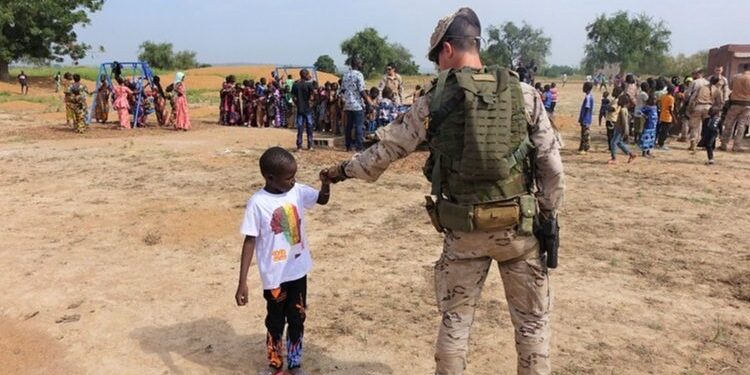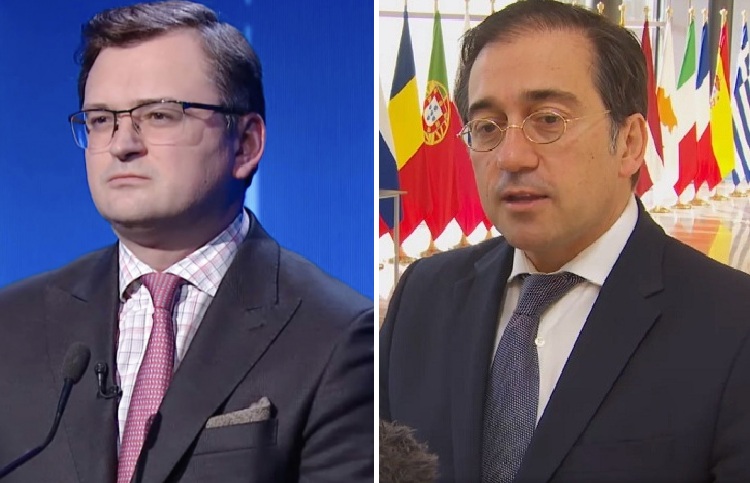Eduardo González
The Minister of Foreign Affairs, José Manuel Albares, warned yesterday that the permanence or withdrawal of the current Spanish contingent in Mali will depend on what “all European countries together” decide.
“The situation in Mali has been worrying for many years and that is precisely why there are Spanish troops on the ground, as there are from many countries, and there is an EU training mission, EUTM Mali,” Albares said during a meeting with the press at the Viana Palace in Madrid, after France and other European countries have threatened to withdraw their troops from Mali as a result of the hostility of the Malian military junta and the presence of Russian paramilitaries in the country.
“The decisions we have to take in this regard will be taken by all Europeans together because that is how the decision was taken to arrive together in Mali,” Albares continued, referring to the uncertainties that have been created about the continuity of EUTM Mali. In any case, he announced, he himself intends to “analyze the situation” during the meeting he will hold today in Lyon with his French counterpart, Jean-Yves Le Drian, in the margins of the double meeting of the European Ministers of Foreign Affairs and Health Ministers, convened by the French Presidency of the Council of the European Union.
Last week, the transitional government in Bamako expelled the French ambassador, Joër Meyer, from the country in protest against Le Drian’s “hostile and outrageous statements” in which he denounced the presence in Mali of Russian mercenaries from the Wagner Group, whom he accused of “plundering” the country’s resources in exchange for protection of the military junta. Albares had a telephone conversation last Friday with his French counterpart in which he conveyed “Spain’s solidarity for the expulsion of the French ambassador in Mali”.
As a consequence of this situation, France has warned of the possibility of withdrawing its troops from the country, both those of EUTM Mali and those of the Barkhane operation for the fight against terrorism and those of the Takuba force, made up of special units from different European countries. France has more than 5,000 soldiers in the country. For her part, the German Foreign Minister, Annalena Baerbock, has announced that her country could reconsider the permanence of its more than 300 troops in EUTM Mali and of its almost 1,000 soldiers in the UN mission (MINUSMA).
Spain currently provides the largest contingent (500 soldiers, 24% of the total) of the European Union Training Mission in Mali, responsible for training the security forces of Mali, a key country in the fight against jihadist terrorism and other challenges facing the security of the EU and other countries in the Sahel and northwest Africa.
Following the double coup d’état of August 2020 and May 2021, the transitional military government led by Assimi Goita – who recently announced his intention to delay the elections announced for February 2022 due to “security concerns” – turned to the Russian paramilitary Wagner Group (led by a personal friend of Russian President Vladimir Putin) to take over security. On January 24 of this year, European foreign ministers – including Albares – condemned the presence of the Wagner Group in Mali and the decision of the Malian authorities to extend the transition period to four years.
For her part, the Minister of Defense, Margarita Robles, warned at the end of January during a meeting with her European counterparts – convened by the French Minister, Florence Parly – that the presence of the EU in the African country is “essential” to “avoid a governance vacuum in Mali and a disaster as happened in Afghanistan”, for which reason she asked that everything possible be done to maintain the commitments of the international forces in Mali, especially those of the European Union and the UN.







